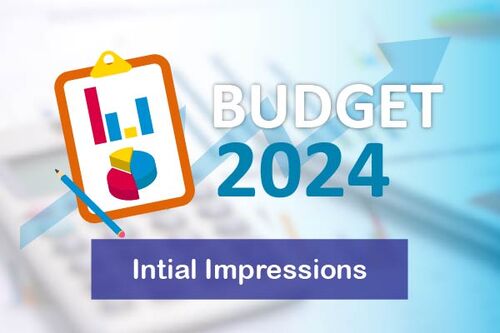On Tuesday, October 10th 2023, the Government announced Budget 2024. Under the theme of adequate income, the INOU had called on the Government to increase social welfare payments by at least €25 per week. Today’s increase of €12, while welcome, will leave many people trying to manage on a social welfare payment struggling to make ends meet.
On a more positive note the Minister for Public Expenditure, NDP Delivery and Reform, Paschal Donohoe, TD stated that “for those in receipt of regular Social Protection payments, I can confirm to the House that the Christmas Bonus will be paid in early December” and that “in addition to this, to support those in receipt of a weekly social welfare payment, I am providing for a once-off double week "Cost of Living Support" payment to all qualifying Social Protection recipients. This will be paid in January and will include pensioners, carers, people on disability payments and jobseekers”.
Amongst the other measures the Minister announced this afternoon included “a €300 lump sum payment will be made to recipients of the Fuel Allowance in the last quarter of this year”. He did not state whether or not there would be an extension to the Fuel Allowance duration, or an increase in its weekly payment. The INOU had also sought earlier access to this payment and the Christmas bonus for people on a Jobseeker’s payment, in general these payments are paid to people who are deemed long-term recipients of a social welfare payment, and for people on a Jobseeker’s one this means being on it at least one year.
The INOU has called on the Government to re-introduce a pay-related element to Jobseeker‘s Benefit and restore its duration to pre-2008 levels. In the Budget 2024 Expenditure Report it is noted that “Subject to Government agreement on final scheme design and the necessary PRSI increases, to introduce a Pay-Related Jobseeker’s benefit scheme which links the rate of benefit to a person’s previous earnings, from December 2024”. (p143) Further details should be available in the Social Welfare Bill that must be published to give effect to many of today’s budgetary announcements.
Over many years the INOU has sought automate access to the Working Family Payment to minimise the time gap between the individual taking up employment and gaining access to this support. To date this has not happened, but the Minister did announce under the Cost of Living heading that “to ensure that our supports are targeted to the families that need them most, I am also announcing that a €400 lump sum payment will be made to recipients of the Working Family Payment later this year; while under the heading of Tackling Child Poverty he stated they would be “raising the income threshold on the Working Family Payment by €54 per week”.
On page 144 of the Budget 2024 Expenditure Report it states that there will be an “Increase both IQC rates by €4, from €42 to €46 per week in respect of children aged under 12, and from €50 to €54 per week in respect of children aged 12 and over, from January 2024”. While in the Government’s publication “The Budget in Brief Your guide to Budget 2024” they note that there will be a “Lump sum child benefit payment of €100 per child”. In Minister Donohoe’s Budget speech he stated that there would be “A double payment of Child Payment, worth an additional €140 for each child, will be made to all qualifying households before Christmas.”
In our pre-budget submission we had also called on the Government to promote the roll-out and attainment of a MESL informed Living Wage. In his Budget 2024 speech, Minister for Finance Michael McGrath announced that “as of 1 January 2024, the national minimum wage will increase by €1.40 per hour to €12.70 per hour” and “to ensure that such workers remain outside the higher rates of USC, I will be raising the entry threshold to the 4% rate to €25,760 in line with the increase to the national minimum wage. A full time worker on the minimum wage will see an increase in their net take home pay of approximately €2,300 on an annual basis”. According to the Living Wage for Ireland website, the living wage in Ireland for 2023 / 2024 is €14.80 per hour, so though the increase in the National Minimum Wage is to be welcomed, it still falls short of supporting people to meet a minimum acceptable standard of living.
Our full Post Budget Analysis is now available linked here.
